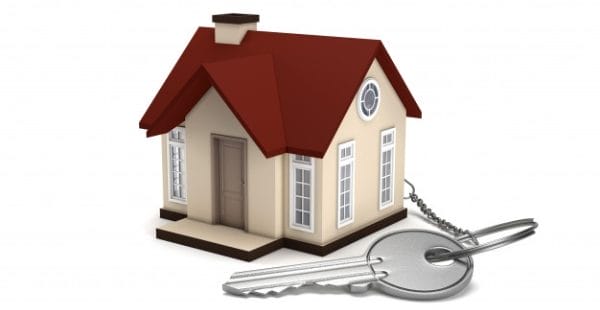
Purchasing a home of your dream is one of those accomplishments of life that always holds a top position in everyone’s bucket list. The problems you may come across while buying a flat or a house may differ from person to person, as it depends on numerous variables i.e. personal preferences, budget, location etc… However, as PropertyHunters.com says, there are certain problems which are common to all flat/house buyers. These problems are irrespective of your choice of city/village price (i.e. Affordable / Economical / Luxury).
To fulfill all the requirements of your dream property, here, in this article, we are discussing some important home buying tips. RERA – Real Estate Regulatory Authority (Government of Gujarat) plays a vital role and helps the buyer in a big way. Thus, with a government regulatory like RERA intervening, be vigilant and exercise your rights while fulfilling your commitments.
Things You Must Know and Take into Consideration Before Buying a Flat or a House
01. Size of the Flat and Your Budget
02. Selection of Location
03. Selection of Project / Builder
04. Cost
05. Finance – Payments
06. Precautions – Legal
07. Precautions – Unethical Builders
08. During Construction / Possession Time / DocumentsFor better understanding, let us discuss the above mentioned factors step by step.
01. Size of the Flat and Your Budget Needs to Be Considered While Buying a Home!
Whenever you go for shopping, the budget is always at the back of your mind. You can never ignore it, and obviously not when you are purchasing a house that is going to be perhaps once in a lifetime. Hence, before you start exploring options, first decide your optimum capacity, set a higher limit which makes it affordable to you, not giving excess stress to your pocket where you need to make major compromises and cost cutting with your necessities. Neither over inflate your budget nor underestimate your needs.
Striking the right balance between your needs and affordability is perhaps going to be vital yet one of the wisest decision of your life if you get that precise. You should remain careful to see that neither you are governed by emotion, nor by neighbour’s envy nor you should try to satisfy your ego out of pomp and show. So decide how much big a flat, or a row house or an individual bungalow is affordable for you.
02. Selection of the Location is Important While Buying a Home!
a) Acquaint yourself with the terminology generally used in real estate as well as construction industry and “the important technical/commercial conditions which the builder may avoid in brochure”.
(Refer our Website/ Article – Importance of Site Location & Wind Direction in Site Analysis!)
b) Identify the locality which suits you the best, considering your budget, your convenience and availability of physical and social infrastructure in vicinity.
c) Firstly, give yourself adequate time for selecting the locality and thereafter go for the selection of scheme/flat/builder/developer.
d) The inadequate survey/information regarding the locality or neighbours may land you in troubles later on.
e) If at all necessary, select appropriate and reliable real estate brokers or some intermediate persons. Always get feedback about their integrity and the quality of their service from their earlier clients as there are no regulatory authorities particularly in India where you can refer in case of disputes with them.
03. Selection of the Builder/Project

Certificate of the Developer/Builder:
a) Prepare a list of buildings you like/prefer in an order and rank them on your own as per the priorities set by you.
b) Out of the lot, the buildings and locations which are now short-listed by you, make enquiry about the builders/developers associated with each of them and check whether they have a good reputation or no, whether they are known for their integrity or no etc. Also check whether the project as well as builder is registered under RERA or not. This is MUST.
c) Visit all the houses/schemes you have short-listed. Note down your instant and immediate feelings while you had a first glance at them. Do take your family members during different times of day to all those houses that gave you a good/positive feeling and seek their opinion.
d) Read thoroughly all the information given in the brochure including the technical and commercial aspects. If it is silent on any important technical or commercial aspect, discuss the same with the builder.
e) Check whether you are buying directly from the original builder or from a reseller/investor through a builder. If you are buying directly from the builder, you may get time to make payment. However, if you are buying from the investor/reseller, you might have to pay immediately at that time.
f) Check the integrity and transparency of the developer/builder. Check his history. Visit some previous projects completed by him. Get opinions regarding his quality of construction, his behaviour, dealing, clarity, integrity, transparency etc. from the flat owners who have already purchased flats from him.
g) Never forget that you are buying a house and not any of those common amenities available in the scheme. Nowadays the builders give pompous advertisements by highlighting the common amenities like clubhouse, sports complex, swimming pool, gymnasium, common hall, temple, amenities related to recreation ground etc they provide in the name of luxurious lifestyle. (Bear in mind that you are buying a flat and not a clubhouse or a swimming pool).
h) When you are buying a house and comparing alternative schemes of different builders, always work out the cost per sq.ft. of carpet area by dividing the total cost of flat by its carpet area. This will give you an idea of the best economical offer you have in hand. Thereby making such comparative study, you should take a decision of buying a house i.e. compare rates of all the properties on per carpet area basis. For Carpet Area Calculation, You can refer –
i) While negotiating with the builder/developer try to get the cost per sq.ft. of super built up area, built up area as well as carpet area. With RERA in force now, this is not much relevant now. Also check the carpet area declared by the builder with RERA authorities.
04. All the Cost that Needs to be Taken into Account While Buying a Home!
If you are planning to buy your dream home, the first thing that should come to your mind is its “cost”. In spite of all your efforts you are likely to miss out few things. So, here are some points you must keep in mind as far as the cost is concerned.
a) Remember, cost of the house is not only what your architect/engineer estimates or what you pay to the builder but it also includes stamp duty, registration fee, advocate fee, service connection charges/deposits in statutory authorities, cost of infrastructure, society maintenance, broker’s fee, cost of parking, cost of interior design, furniture, fixture, appliances, cost of shifting, cost of vatu puja, and other such ceremonies.
b) Assimilate all your sources of funds. Based on that, decide upon the amount of loan you need. You might have to pay some instalments before taking the possession of the house. So, keep this in mind too. It is always wiser to make provision of minimum 5% to 10% of the total cost under the head of contingency expense as some unforeseen expense can always turn up.
c) Check the normal service charges that you will have to pay to the society after the completion of the building. In metropolitan cities or even in the posh localities of many developed cities, the service charges are so high that it might not be affordable for every buyer to bear it. For some, paying the charges in one go might not be possible and they may even think of paying the charges on long term basis.
d) If you are buying a new house, you will have keep aside some fund for fixtures like lights, bulbs, fans, air conditions, furniture and various other home appliances. Even if the house is purchased on resale, you might have some of these facilities but not necessarily everything as per your requirement.
05. Finance/Payments
Advance Payment:
Remember, you can never close a deal regarding the purchase of a house, unless you make some advance payment. Even if you are trying to get a housing loan through any bank, the bank will certainly ask for a margin which has to be paid. Most banks insist anything between 10% and 25% as margin.
Many builders also ask for the down payment of equal amount which can be paid in 2 / 3 installments, depending upon the status/progress of the work. Keep this advance amount ready with you. Pay the advance, ensure legalities, go for proper agreements, understand terms & conditions of sale, finance and act accordingly to honour your commitments in time bound manner.
Bank Tie-ups:
a) Never buy a house without making a long term planning of funds. An individual generally buys a house once in lifetime from the savings of his long years of hard work. Repayment of housing loan is not like repaying a business loan where you can make the repayment within short term i.e. 3 / 5 years. While purchasing a house, always plan for long repayment period. But keep this in mind that you must be able to square up the loan before you retire.
b) If you wish to obtain a loan/finance from Bank or financial institution, enquire regarding the same with at least 2/3 banks, get the best offer in terms of interest rate, processing charges etc. Make the right choice between “Floating rate interest v/s Flat rate interest loan”.
06. Precaution – Legal
RERA your Rights & Duties:
RERA now regulates the builder’s profession in India. It protects the rights of both – the buyer as well as the builder, though it is inclined more towards protecting the buyer’s rights. RERA constitutes the rules which regulates terms of payment, time of delivery, workmanship etc. Read our particular blog to understand this in detail.
Approval & Licences:
a) Verify whether the land on which the building is to be constructed has been approved as N.A. (Non Agriculture) and can be used for Residential purpose or no?
b) Confirm whether the plans are approved or not by the competent local authority / RERA authority. As a buyer you must know whether the developer has obtained the construction permission or no.
c) As a buyer you should be aware whether the completion certificate has been obtained from concerned local authority or no.
d) It is quite possible at times that the completion certificate might have been issued but the construction might not have been carried out as per the approved plan. This does happen in India. So get it checked or check it for yourself.
07. Precautions – Unethical Builders
Are you Getting What is Promised?
Visit the site periodically and confirm that the builder is using all the materials he has promised. Similarly keep a track and check all the amenities which are facilitated ‘in common’ to all the flat holders of the project -be it inside the flat or outside. Make sure that you get all that has been promised to you and also satisfy yourself regarding its specifications.
Many builders do not provide very important documents like original conveyance deed of land, copy of approved plans, as-built drawings, society registration documents, completion certificate etc. As a prudent buyer you must get all these and preserve it.
a) Not handing over required documents for availing housing loan, the sanction of loan gets delayed resulting into delay in payment to the builder for which the builder will hold the buyer responsible. This may create unnecessary disputes including the claim of interest.
b) Lack of transparency in the technical as well as commercial conditions of the scheme in the attractive brochure of the builder. Many things are either not stated, or not clarified or not transparent.
c) Not observing transparency regarding additional or extra works other than those promised in brochure. Or, not observing transparency for those costs in case of change in specifications by the buyer.
d) Not allowing any changes in internal construction as desired by the user/buyer though legally permissible.
e) Sometimes the developer/builder are smart enough to get the completion certificate in halfway, i.e. even on completion of the skeleton of the building while the changes in the approved plan might be done subsequently without any knowledge of the buyer. e.g.: Covering balcony, covering area provided for parking etc. Thus, you might land yourself into a property where construction is not fully authorised.
f) The builder/developer may sale illegally common terrace/terrace rights, parking or common land to third party or he might carry on some illegal work in the premises which is owned in common by all the members.
g) The builder/developer might have collected the maintenance fund from all the buyers. However, while handing over the possession of the building to the society or association of members, the builder might not handover such funds to the society/association of members.
Right Carpet Area:
a) There is hardly any transparency as far as carpet area, built up area and super built up area is concerned. Hence, check properly every aspect related to your flat and cross-check whether you are paying accordingly. You must confirm about the carpet area efficiency of your flat with the builder. If it is very low, you will end up paying him a higher rate per sq.ft. / sq.mt.
b) There is no transparency and declaration of correct carpet area, built up area and super built up area. It is stated randomly as certain %, though there are scientific methods to calculate all.Don’t get confused between Built-up Area, Carpet Area & Super Built-up Area. Refer:
Penalty Clauses – For Late Possession:
a) In case the builder does not hand over the possession of the house in promised time, he will be entitled to pay you a monthly penalty as stated in the contract. RERA now gives basic rights to the buyer if the project is delayed.
b) The timeline for the delivery of a project depends on various factors, i.e. heavy monsoon, availability of materials, transportation, labour, etc. Thus, most developers seek a grace period of 3-6 months for final delivery of the project. This grace period must be mentioned in the contract you sign with the developers.
08. During Construction/ Possession Time/ Documents

a) Always make all the payments through cheques.
b) Get signature of the witnesses in all the agreement with the developer.
c) Have clarity about specifications, brands of fixtures and extra money you need to pay in case you select higher and better specifications.
d) Have a clarity regarding completion time, interim payment, installations, method and cost of registration, documentation etc.
Conclusion
Through this article we have provided you with the tips which as a buyer are in your interest. The guidelines in this article will help you understand various aspects regarding the buying of your home so that you are not cheated. We do not buy house often. A smart and cautious customer always makes a better deal! Hence, be the one. Go thoroughly go through all the tips mentioned here and follow them strictly and vigilantly. We wish you an easy and comfortable journey to your new home. May happiness and love move in with you. Stay blessed, stay happy.
Must Read:
10 Legal Considerations When Buying a New Home!
Beginner’s Guide for Buying an Apartment





































